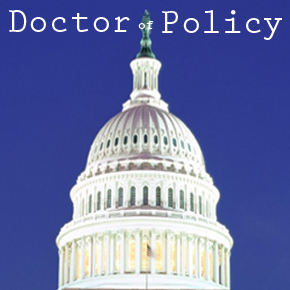Obamacare subsidies were upheld Thursday as the Supreme Court issued its decision on King v. Burwell. Here is your two minute brief on what the decision means.
What was at stake?
The Affordable Care Act (ACA) aka Obamacare aka SCOTUScare (shout out to Justice Scalia) created health insurance exchanges in which people who do not have employer based insurance, Medicare or Medicaid can compare plans and select insurance which best suits them. In an effort to curb some of the expenses to the consumer, the ACA intended to offer tax credits to people purchasing insurance through exchanges. The plantiffs argued that Congress did not have the authority to grant these credits at the federal and state levels because of the use of the language “by the State.” Without these subsidies, it is likely that the insurance provided through the marketplace would be more difficult to afford for many enrollees, being that they selected their plans under the premise of receiving a subsidy. One estimate suggests that nearly 5 million people may have been at risk of being unable to afford their insurance.
What did the Supreme Court say?
The majority opinion, authored by Chief Justice John Roberts centered around the intention of the law as drafted by Congress: “The combination of no tax credits and an ineffective coverage requirement could well push a State’s individual insurance market into a death spiral…it is implausible that Congress meant…to act in this manner.” Essentially, the justices surmise that the phrase “by the State” applies to both individual states and the State. This distinction is important because many states do not yet have their indvidiual health exchanges up and running, so if the Federal Exchange subsidies were invalidated, the impact would be widespread.
The dissenting opinion, authored by Justice Antonin Scalia focused on the lack of clarity in the language of the law, and his sense that the Supreme Court was overstepping its bounds in interpreting the law: “The Court holds that when the Patient Protection and Affordable Care Act says ‘Exchange established by the State’ it means ‘Exchange established by the State or the Federal Government.’ That is of course quite absurd, and the Court’s 21 pages of explanation make it no less so.” Justice Scalia goes on to express concerns today’s ruling is an effort to “rescue Congress” and to “repair [a law] that do[es] not work,” which is beyond the scope of the Supreme Court.
What does the decision mean?
Tax credits may be issued for both federal and state exchanges for the forseeable future. This means that people can purchase insurance plans with this knowledge, and those who have already enrolled can continue to stay with their plan based on this information. As you may imagine, this can keep health insurance more affordable for lower income individuals who are not eligible for Medicaid or Medicare.
What are the implications for medical students?
If you have not read up on the Affordable Care Act, do so now! With this challenge to the ACA defeated, it appears that the ACA is here to stay, at least for the time being. The Kaiser Family Foundation offers more in depth primer information that you may find helpful.
Be prepared to explain insurance enrollment to your patients. Whether you encounter a patient who lacks insurance or someone who has recently switched employers outside of open enrollment, make sure you are in the know about how they can gain access, or at least can point them to relevant resources. Thirty-four states still have not set up their own exchanges and their residents still need to use the federal exchange to access insurance.
Particularly for Medicare, there will be changes to payment as a result of Accountable Care Organizations (ACOs) and Comprehensive Primary Care Initiatives. Both of these programs are efforts to improve care coordination and access to preventive health care among Medicare patients and are programs being piloted by Medicare. With these changes, payments to clinicians will be based more and more on quality metrics rather than by quantity of services performed. The rules and regulations are constantly evolving, so watch this space for more information.
Doctor of Policy is a column dedicated to exploring and challenging contemporary health policy issues, especially in the fields of behavioral health, health care access, and inclusion, all from the eyes of a public health girl in a basic sciences world.

